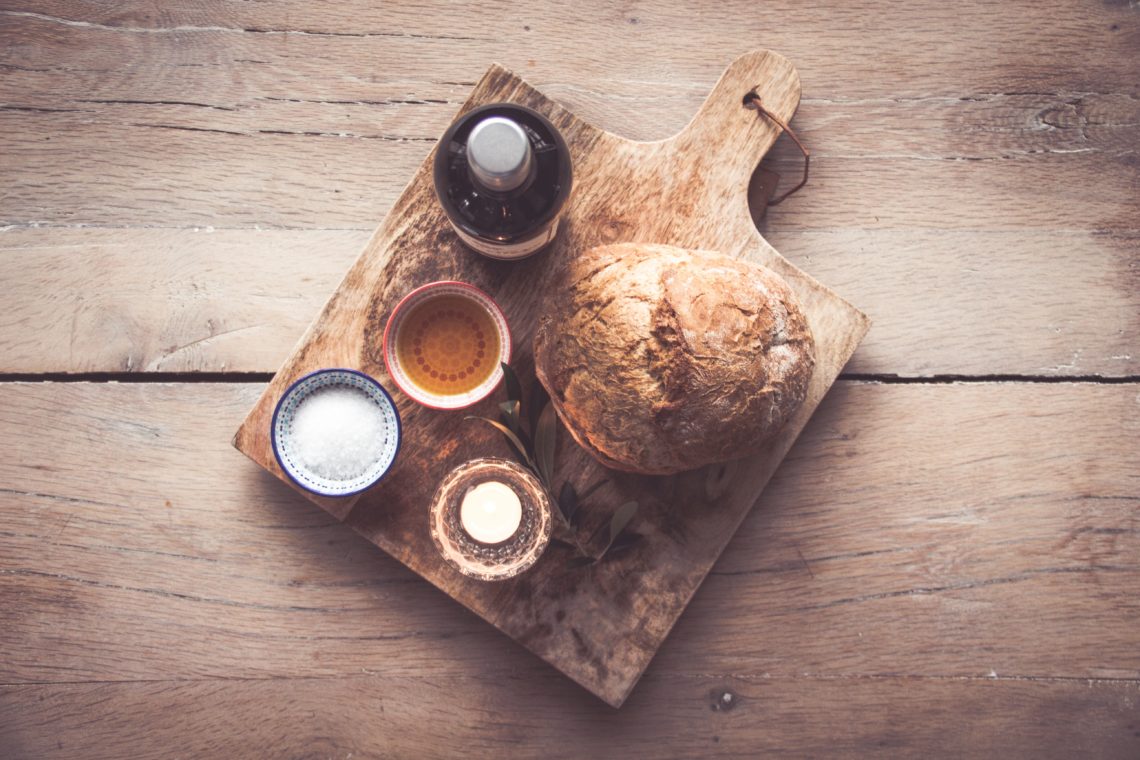
Bread and Porridge
As
a child, I had a very old book of stories that was handed down from my family,
the cover of which was shaped like the trunk of a tall and narrow tree, The Tall Book of Nursery Tales1. Inside were fairy tales, some of Aesop’s
fables and lots of folk tales. I remember reading them over and over
again. I can still see the illustrations with their old-fashioned images
of round, rosy-cheeked people dressed in simple clothes, richly detailed animals,
and scary forests full of menacing trees. Stories of The Three Billy Goats Gruff, The
Fox and the Grapes, and Red Riding
Hood filled the pages with bedtime tales of magic and thinly disguised
advice on moral living. I couldn’t stop thinking about one of the stories in
that book as I listened to a scripture in church one recent Sunday. It
was I Kings 17: 8-16, the story of a poor woman who was instructed to make
something out of her last bit of flour and oil and to give the result, a simple
cake/bread, to Elijah. In obedience, she did so. Afterward her flour jar
and oil jug never were empty again…Leap, Leap, goes my unpredictable mind. I
don’t regard scriptures and other literature as having the same authority, but
this is just about a perfect Bible version of The Little Pot that would not Quit Boiling, one of the stories in
my Tall Tales book. In the
story, a poor little overworked housewife wishes that her porridge pot never
runs dry, and the rest, as they say, is history. That pot kept on boiling and
pouring porridge out onto the stove, then the floor, and then out the door
until it made a river of porridge running down the street. All the villagers
came running out with spoons and bowls, but still the porridge just kept on
flowing. It seems that once this little pot got started, it couldn’t quit
no matter what.
As my brain made this sideways connection, I waited for some
insight. Connecting an old folk tale to the Elijah story? Hmmm. This
didn’t seem too logical, but I have learned to trust these odd leaps as
insights into the ever-creative mind of our God. Only a few seconds later, I began to see
some congruency as I opened up my mind to possibilities and let the thoughts bubble
and pour. I thought about the Presence of God, and how sometimes I am in a dry
spell when it is almost impossible to find that voice that inspires and
urges. But not to worry. Just like the poor woman’s flour jar in
the Bible (and the old woman in the folk tale), God’s abundance is as close as
a shelf in my kitchen, generous and eternal, accessible and available… and a
little bit unpredictable.
As I continued to think about the two stories, their lessons diverged sharply
and the similarities faded. In the scripture, the ever-full flour jar and oil
jug symbolize the constancy of God and God’s provision for us. The other
story’s moral is a familiar one in the folktale tradition: Be careful what you wish for. This has never one of my favorite
moral lessons. But the idea of abundant, unexplained generosity? This
common thread I can get on board with. God provides so much love, so much
inspiration, so much joy, so many ideas for how to live our lives abundantly
that we will never, ever run out of ideas, or things to write about, or talk
about, or learn about. We can never exhaust that beautiful, nurturing Presence
that is always there, breaking in when we need it or when we don’t even know we
need it, such as a mind making odd leaps and connections in the middle of a
very traditional Sunday service. The sermon that followed those verses on
that Sunday didn’t resonate like the one that was going on inside my brain.
Once I begin to take what is here before me, the “flour and oil” of
God’s generosity, and begin to stir it and knead it and let it rise, something
warm and delicious will surely come. Once that Spirit-filled pot starts
boiling, you never know what will happen. The Presence can even get a little
out of control as it bubbles and grows and spills out into the wider world,
providing sustenance for all who decide to dive in and join the nourishing
stream that is heading off in ways that we can’t imagine. Spoons up! Dive in! Abundance awaits!
1 The tall book of nursery tales (1944). New York: Harper and Brothers.
Reflection Questions:
How have you experienced the abundant and unpredictable generosity of God’s spirit?
How does connecting scripture to folk tales or other literature (or vice versa) work for you as a spiritual practice or source of inspiration?



